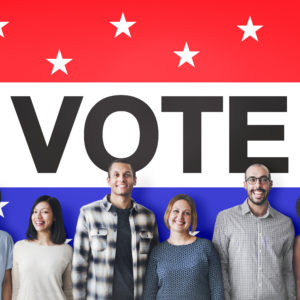Editor’s Note: For an alternative viewpoint, please see CounterPoint: Should Election Day Be A Holiday? No Way!
In 1845, Congress passed the law designating Election Day as the first Tuesday following the first Monday in November. Why? Because that time follows the fall harvest but precedes the worst of winter. Nearly two centuries ago, in an agrarian society, that measure was designed to expand voting by avoiding conflicts with the farming calendar and enabling farmers to make the one- or two-day trip to polling places.
But America has long ceased to be an agrarian society, and the timing of Election Day now functions as an impediment to, rather than enabler of, wide participation in our democracy. For working people, getting to the polls on a work day, especially when lines may be long or if they work multiple jobs, is often extremely difficult or even impossible. The solution is easy: Make Election Day a national holiday.
There’s only one serious objection to this idea: paid holidays are a burden on employers and reduce economic output. But the objection is easily overcome, because we don’t need to create an additional national holiday. Election Day could be moved to Veterans Day, enabling us to honor those who have served by recommitting to our democracy through the sacred act of voting. Alternatively, an Election Day holiday — or, better, “Democracy Day” — could be honored on its current date, the first Tuesday in November, in place of the federal recognition of Columbus Day. Or, the Democracy Day/election day could be held on a weekend.
American voter turnout is anemic. In recent presidential elections, between 50 percent and 55 percent of the voting-age population has cast a ballot, with a spike up to 58 percent in 2008, during Barack Obama’s historic election. (Turnout among voting-age citizens is around 60 percent.) Although there appears to be unusual enthusiasm around our coming election, voting rates in midterm elections are far worse, generally on the order of 40 percent. In 2014, a pathetic 35.9 percent of eligible voters cast a ballot — barely more than one in three.
U.S. voting participation rates are at the back of the pack among rich countries. We rank 26 among 32 countries in the Organization for Economic Cooperation and Development (a grouping of most of the world’s wealthiest nations) for which comparable data are available. This is one of those international comparisons where we really should aspire to be at the top because voting participation is a crucial indicator of democratic health.
Of course, making Democracy Day a national holiday is not a perfect tonic for our low voter turnout rates. It should be part of a package that includes:
—Restoration of the Voting Rights Act, and an end to the systematic voter suppression efforts — largely targeting people of color — that are rampant throughout the country.
—Automatic voter registration.
—Expanded early voting and guarantees that all Americans have access to a nearby polling place with sufficient capacity to eliminate long lines and delays.
Americans also have to believe that their votes make a difference. The most important step in that direction would be to end the dominance of Big Money in our elections, including the torrent of negative advertisements they fund. We could do that by providing for public financing of our elections and a constitutional amendment to overturn Citizens United, the Supreme Court decision holding that corporations — and, by extension, super rich individuals — have a right to spend as much as they please to influence election outcomes.
With a designated Democracy Day, we could not only remove needless barriers to voter participation, we would have an opportunity to create a civic celebration of our democracy, deepening community bonds and our shared commitment to democratic practice and participation, irrespective of ideological or partisan divides.

